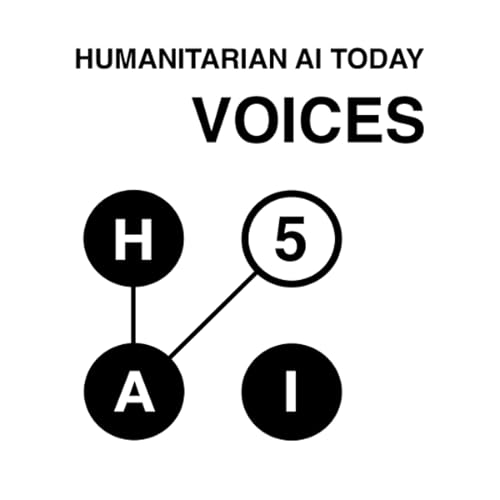Voices is a new mini-series from Humanitarian AI Today. In daily five-minute flashpods we pass the mic to humanitarian experts and technology pioneers, to hear about new projects, events, and perspectives on topics of importance to the humanitarian community. In this flashpod, Lindsey Moore, Founder and CEO of DevelopMetrics, joins Humanitarian AI Today producer Brent Phillips to talk about agentic AI and bold new funding initiatives like Humanity AI. According to Humanity AI’s website, the coalition is co-chaired by Omidyar Network and the John D. and Catherine T. MacArthur Foundation. Its founding members include the Doris Duke Foundation, Ford Foundation, Lumina Foundation, Kapor Foundation, Mellon Foundation, Mozilla Foundation, Siegel Family Endowment, and the David and Lucile Packard Foundation. Over five-years, the coalition plans to dedicate $500M towards making sure people and communities beyond Silicon Valley have a stake in the future of artificial intelligence establishing an AI future where people and communities can flourish. Lindsey Moore offers a grounded perspective on the current state of AI in the humanitarian sector. She observes that despite industry buzz, most organizations are not yet experimenting with agentic AI. Instead, they are focusing on more foundational challenges, such as organizing their data and building domain-specific large language models that can grasp the unique context and terminology of their work. Discussing the Humanity AI initiative, Lindsey and Brent express hope that such bold new funding can, with an informed understanding of the sector, help offset the destructive impact of recent aid funding cuts. These cuts disrupted foundational AI capacity-building that was being carried out by established organizations with deep domain experience, destroying numerous projects and dismantling teams behind them. They make a compelling case for funders to reinvest in these organizations and their important work to prevent hard-won gains from being lost and to scale their forward momentum. The conversation serves as a call to action, emphasizing that for initiatives like Humanity AI to be truly transformative, they must go beyond traditional philanthropy. This means proactively identifying and engaging with the humanitarian community's own AI leaders, reforming conventional cyclic grant solicitation and grant-making processes that too often overlook real sector innovators and builders, and boldly forming new partnerships that make them accessible and open to input, rather than insulated behind institutional firewalls. Substack notes: https://humanitarianaitoday.substack.com/p/lindsey-moore-from-developmetrics
Exibir mais
Exibir menos
 16 minutos
16 minutos 44 minutos
44 minutos 18 minutos
18 minutos 36 minutos
36 minutos Nov 2 202526 minutos
Nov 2 202526 minutos 24 minutos
24 minutos 12 minutos
12 minutos Oct 17 20258 minutos
Oct 17 20258 minutos

